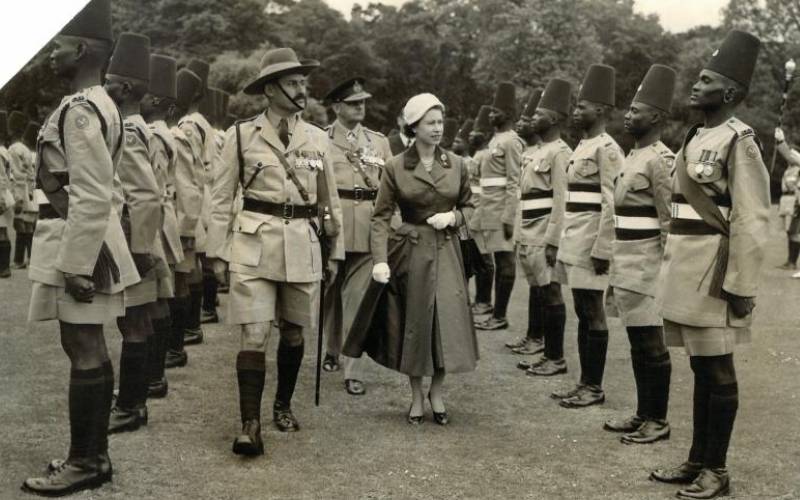×
The Standard e-Paper
Fearless, Trusted News

Queen Elizabeth inspecting a detachment of Kings Africa Rifles at Buckingham Palace, 1957. [File, Standard]
He who controls the mind can lead an elephant using a thread. This was the concept Britain employed to colonise East Africa through remote control, as it deployed just 600 white officers to command 5,000 African soldiers and indirectly govern millions of what they called natives.